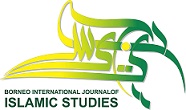Rekonstruksi Hukum Kewarisan Beda Agama Ditinjau dari Al-Ushūl Al-Khamsah
Abstract
Islamic Inheritance Law is believed to be a law containing rules that are in line with public interest. Hence, only few Moslem scholars (ulama’) have conducted ijtihad on the topic in order to reform its rules and bring them pursuant to contemporary situation. Consequently, when there is a gap between the ideal of Islamic inheritance law (i.e. maslaha) and its application in the Islamic society, a rational ruling over the problem of inheritance division faced by Moslems becomes unavailable. Given this, it is necessary to re-interprete the textual sources of Islamic Inheritance Law, in order to come up new rules pursuant to the objective of syari’ah. One of the pressing problems need to be resolved is about the status of Muslim heirs whose inherits from their non-Moslem family. This article thus discusses two main issues: first, what the opinions of Moslems scholars are about a Moslem who inherits from his/her non-Moslem family; and second, which opinion is the most relevant to the al-uṣhūl al-khamsah. This article is doctrinal legal research which employs comparative and deductive analysis. It reveals that: (1) the Moslem scholars are devided into two groups of thought, the first group forbid a Moslem to inherit from his/her non-Moslem family, and the second group allow it; (2) the most relevant opinion to the objective of syari`ah is the second opinion. This is so because the admissibility of a Moslem to inherit from his/her non-Moslem fulfils the criteria of public interest of essential and complimentary level.
Keywords: Islamic Inheritance law, interfaith inheritance law, istiṣlāhi, al-uṣūl al-khamsah.
References
Al-Jauziyah, Ibnu Qayyim. Ahkām Ahl Al-Dzimmah. Beirut: Dāru Ibnu Hazm, 1418.
Al-Mundziri, Hafidz. Mukhtashar Sunan Abu Daud. Kairo: Maktabah Al-Fikrah, t.t.
Al-Qaradhawi, Yusuf. Fiqh Awlawiyāt,. Jakarta: Gema Insani Press, 1999.
———. Fiqih Maqāshid Syar’i. Jakarta: Pustaka al-Kautsar, 2007.
———. Taisīr Al-Fiqh Li Al-Muslimi-L-Muasyiri Fi Dhau’i Al-Qur’ān Wal-Sunnah. Kairo: Maktabah Wahbah, 1420.
Al-Salabiy, Ahmad Musthafa. Ahkām Al-Mawārits. Beirut: Dār al-Nahdhah al-Arabiyah, 1978.
Al-Shabuni, Muhammad Ali. Al-Mawārits Fi Al-Syarī’ah Al-Islāmiyah. Beirut: Dār al-Qalam, 1989.
———. Pembagian Waris Menurut Islam. Jakarta: Gema Insani Press, 2001.
Al-Syafi’i, Muhamad bin Idris. Al-Umm. Beirut: Dār al-Fikr, 1403.
Al-Syaukani, Muhammad. Nailul Authār. Kairo: Maktabah Al-Salafiyah, 1374.
Al-Thūfī, Najmuddin. Al-Ta’yīn Fi Syarh Al-Arba’īn. Beirut: Muassasah ar-Riyan al-Maktabah al-Ilmiyah, t.t.
Hadikusumo, Hilman. Hukum Waris Adat. Bandung: Citra Aditya Bakti, 1990.
i, Musthafa al-Sibā’. Sunnah Dan Peranannya Dalam Penetapan Hukum Islam. terj.Nur Khalis Madjid. Jakarta: Pustaka Firdaus, 1993.
Ibnu Qudamah, Abu Muhamad Abdulah bin Ahmad. Al-Mughni. Vol. 7. Beirut: Dār Al-Fikr, 1404.
Keputusan Fatwa MUI, No: 5/ MUNAS VII/MUI/9/2005 § (2005).
Mughniyah, Muhammad Jawwad. Al-Fiqh ‘alā Madzhab Al-Khamsah. Kairo: Maktabah Al-Fikrah, 1414H.
Sabiq, Sayyid. Fiqh Al-Sunnah. Vol. 4. Kairo: Dār al-Fath, 2004.
Tamrin, Dahlan. Filsafat Hukum Islam. Malang: UIN Malang Press, 2007.
Tohari, Chamim. “Fiqh Al-Aqalliyāt: Framework Ijtihad Hukum Islam Untuk Muslim Minoritas.” Jurnal Istinbath 11, no. 2 (November 2014).
Usman, Muchlis. Kaidah-Kaidah Ushuliyah Dan Fiqhiyah. Jakarta: Raja Grafika Persada, 2002.
Zaid, Musthafa. Shar’hu Al-Arba’īn Al-Nawawiyah: Mulhaq Bi Al-Risālah Al-Maslahah Fȋ Tashrī’ Al-Islāmī Najmuddīn Al-Thūfī. Beirut: Dār ak-Fikr al-Arābī, t.t.


.png)






